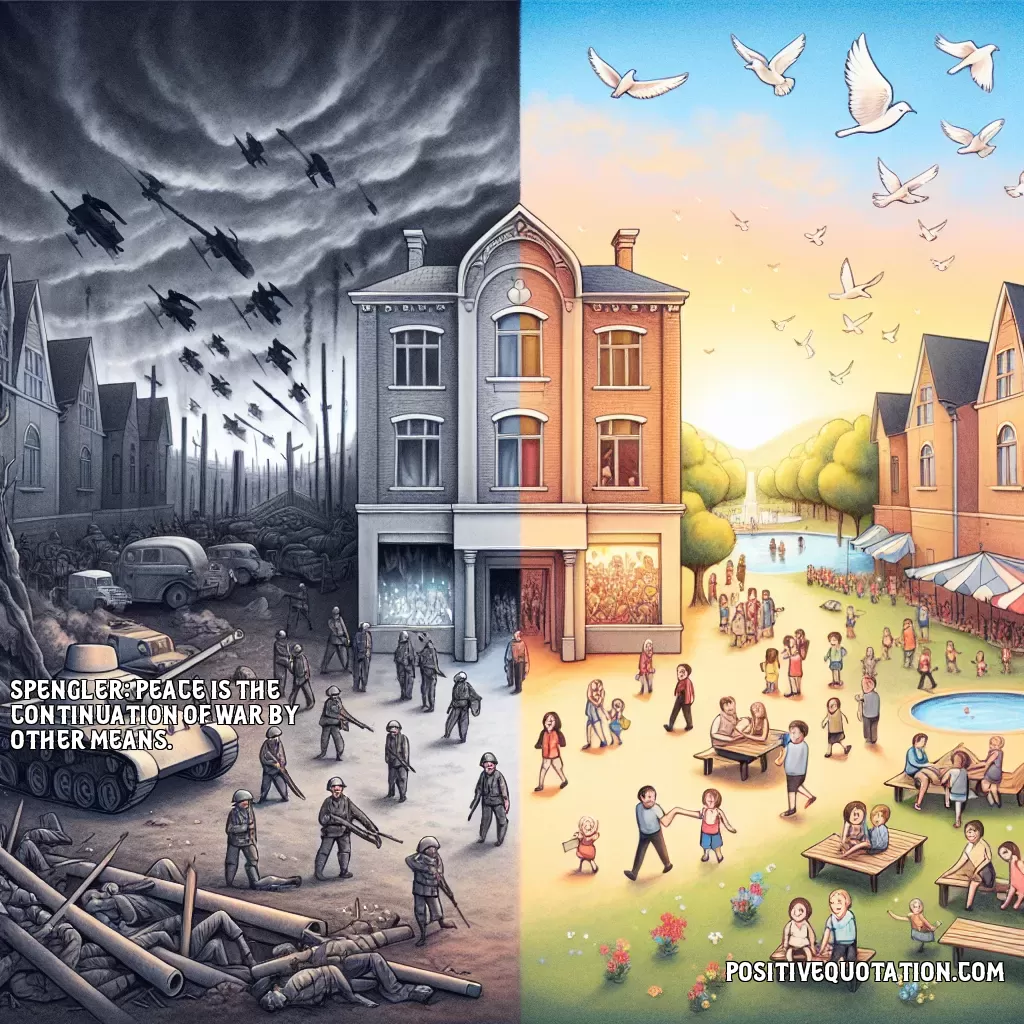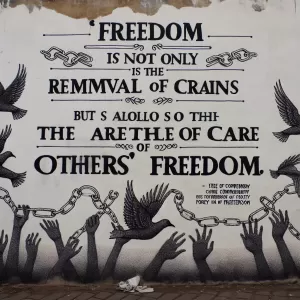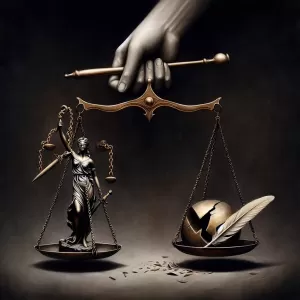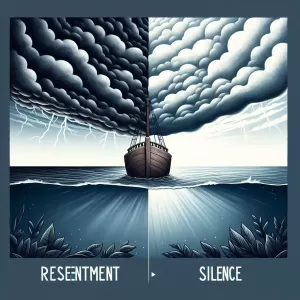
Spengler: Peace is the continuation of war by other means.
Author: Oswald Spengler
👁️ 15 views
The quote, "Peace is the continuation of war by other means," attributed to the philosopher Oswald Spengler, suggests that peace is not merely the absence of conflict but rather a phase in the ongoing struggle for power, influence, or control. In this view, even in times of peace, there are underlying tensions and competition between nations, groups, or ideologies that can lead to conflict. Spengler implies that the dynamics of war—strategic maneuvering, economic competition, cultural clashes—continue to exist in peaceful times, just in different forms. This perspective challenges the romanticized notion of peace as a pure and stable state, emphasizing that the factors that drive conflict remain present, waiting for the right conditions to resurface.
Quote By: Oswald Spengler

Mandela: Freedom is not only the removal of chains but also the care for othe...
👁️ 81 views
Author:
Nelson Mandela
#unique quotes on life

Wounds inflicted by loved ones don't heal because they knew exactly where to ...
👁️ 64 views
Author:
Nikita Gill
#unique quotes on life

If you are neutral in situations of injustice, you have chosen the side of th...
👁️ 64 views
Author:
Desmond Tutu
#unique quotes on life

Real knowledge is to know the extent of one’s ignorance. – Confucius
👁️ 59 views
Author:
Confucius
#unique quotes on life

Chekhov: If a person takes care of their own health, it's hard to find a doct...
👁️ 58 views
Author:
Anton Chekhov
#unique quotes on life

The crowd shows submissive respect toward power. Kindness affects them too, b...
👁️ 56 views
Author:
Friedrich Nietzsche
#unique quotes on life

Anybody can be good in the countryside. There are no temptations there. – Osc...
👁️ 55 views
Author:
Oscar Wilde
#unique quotes on life

The silence after a deep resentment is worse than the resentment itself.
👁️ 54 views
Author:
Marty Rubin
#unique quotes on life
Oswald Spengler (1880-1936) was a German philosopher and historian best known for his work "The Decline of the West," published in two volumes between 1918 and 1922. In this seminal work, Spengler proposed a cyclical theory of history, suggesting that civilizations pass through a life cycle of growth, maturity, and decay, akin to biological organisms. His ideas had a profound impact on 20th-century thought, influencing fields ranging from sociology to cultural studies, while also sparking controversy for their deterministic view of historical processes.
Bio added on: 2025-02-16 11:26:14